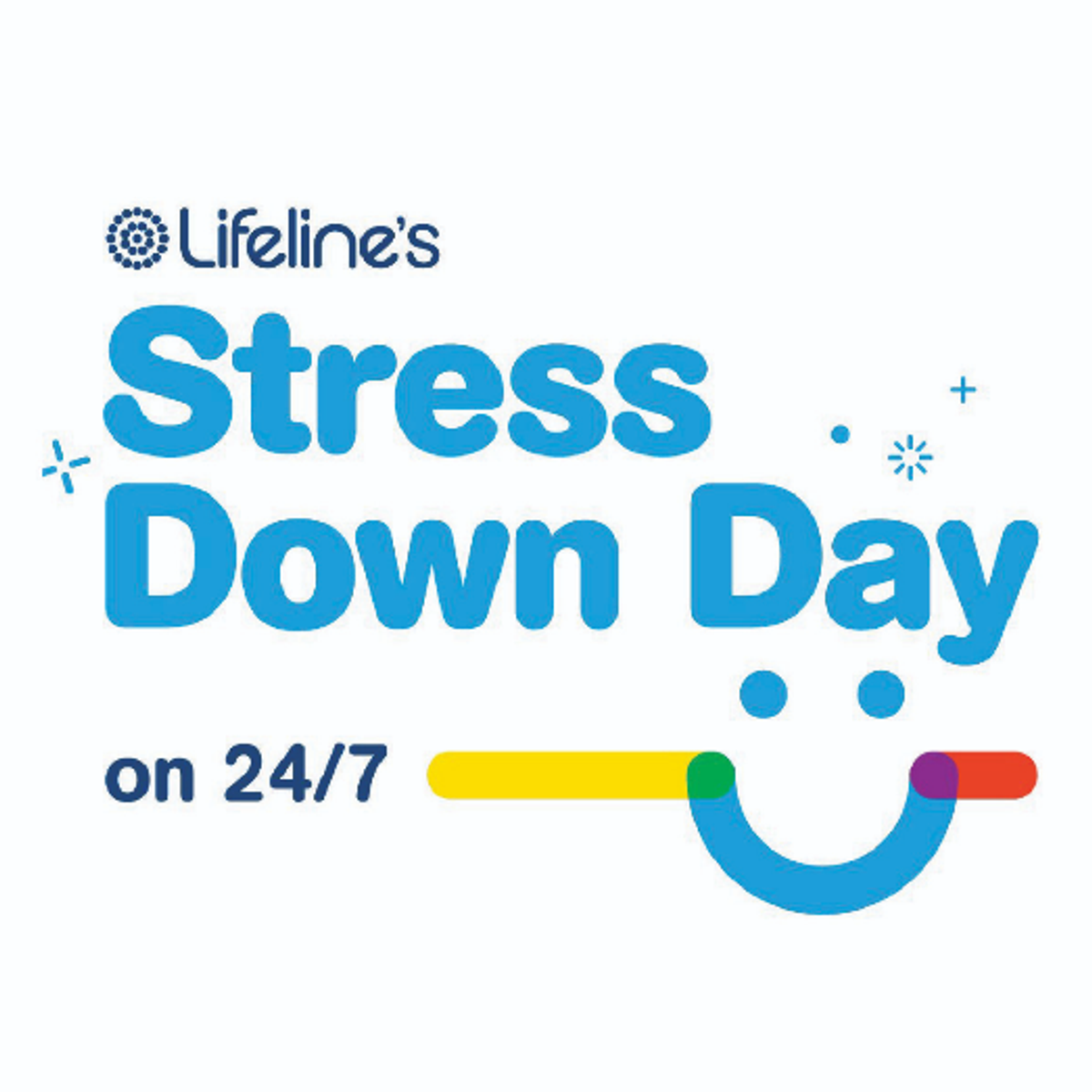Stress Down Day

Friday 24th July 2020 is Stress Down Day. As the name suggests, this national day of awareness is dedicated to reducing stress and educating people about stress and its harmful effects. It is a fun day that promotes happiness and encourages help-seeking. This year, students and staff jumped on board to celebrate this day, and photos will feature in the next edition of eLink.
We encourage parents and caregivers to also take a moment, breathe and reflect on your levels of stress, and consider whether you need to take action.
Everybody feels stress at different times. Stress is not necessarily a bad thing and can serve many purposes. We have evolved through the ages to cope with stress and react to its signals. However, it can affect everyday life and start to turn against your body and mind if not managed. So, if you are one of those people currently feeling too much stress, the following are some of the things that you can do to reduce stress and move through to feeling calmer and happier.
1. Music
Music is something that many people find beneficial. It can have a profound effect on both your physical and emotional state. Preferences may vary, but ‘reading music’ or ‘meditation music’ can be a perfect start if you are looking to soothe yourself or wind down. Did you know research (*1) has found that the brain can synchronize with music around 60 beats per minute, causing alpha brainwaves (alpha brainwave is present when we are relaxed). Examples of 60 beat music are ‘The lion sleeps tonight (Wimoweh! Wimoweh)’ and Elton John’s ‘Honky Cat’.
2. Exercise
Research posits that daily exercise is one of the most effective ways to reduce stress. We know that exercise pumps up your happy hormones. However, did you know that because the function of the fight-or-flight response (stress) is to get us prepared for physical action, that if we undertake some physical activity, we can dissipate the physical symptoms of stress in the body. (*2) Interesting?
In the current climate, visiting gyms or playing a team sport can be challenging. However, there are many ways you can keep yourself moving every day, while staying COVID safe. YouTube resources such as ‘Yoga with Adriene’ and ‘PE with Joe’ are a couple of examples.
3. Mindfulness
Mindfulness is a way of engaging all of the senses to be fully present to avoid stressing about things that may happen in the future or unpleasant events of the past. Most stress is caused by the past or the future, so getting yourself fully conscious to ‘right now’ is always a good option. Try a mindfulness app to get in touch with what’s truly happening right now. Examples are Headspace and Insight Timer.
4. Journaling
Journaling is a handy tool for people and works in a variety of ways. Here we will focus on two of the most effective in managing stress. If stressed at night (and struggling to sleep), taking 15 minutes to bullet point your worries and the things you can change or do to solve them can be a perfect option to calm and slow down the mind. A gratitude journal can also be a really useful approach to ‘counting your blessings’. Each evening simply write down three positive, interesting or lucky things from the day. This habit helps you be more alert to the good things in your day and is said to attract more of the lovely stuff into your life.
5. Reach out to others
In challenging times, connecting with your favourite people may be all that is needed. Those who make you feel loved and safe, or friends who make you laugh and who have a positive outlook are invaluable.
If, however, you need additional support, counselling is always available, through your GP or have a look at some of the online mental health support programs that are also available, and free to us during this COVID time. This Way Up. and Head to Health provides many other available links to trusted Australian online and phone supports, resources and treatment options. An excellent resource.
6. Helping others
A great way to feel better is to forget your worries for a while and focus on helping others. It is usually easy to find opportunities to help others, and it can be a friend, a family member, an acquaintance, or a stranger. The ‘random acts of kindness’ movement has many ideas, so check out the website and carry out a few kind deeds today!
7. Sleeping
‘Adults who sleep fewer than eight hours a night report higher stress levels than those who sleep at least eight hours a night’ (*3) We know this all too well because we have all likely experienced this first hand. Try some of the excellent sleep stories available on the Calm App. to send you off into a blissful slumber, or visit your GP. Getting enough sleep is a game-changer.
References:
- https://www.unr.edu/counseling/virtual-relaxation-room/releasing-stress-through-the-power-of-music
- https://www.active.com/health/articles/exercise-your-stress-away-874849
- www.apa.org

